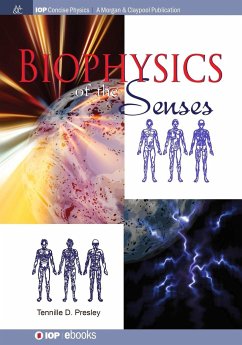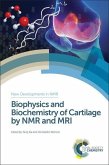Biophysics of the Senses connects fundamental properties of physics to biological systems, relating them directly to the human body. It includes discussions of the role of charges and free radicals in disease and homeostasis, how aspects of mechanics impact normal body functions, human bioelectricity and circuitry, forces within the body, and biophysical sensory mechanisms. This is an exciting view of how sensory aspects of biophysics are utilized in everyday life for students who are curious but struggle with the connection between biology and physics.
Hinweis: Dieser Artikel kann nur an eine deutsche Lieferadresse ausgeliefert werden.
Hinweis: Dieser Artikel kann nur an eine deutsche Lieferadresse ausgeliefert werden.








